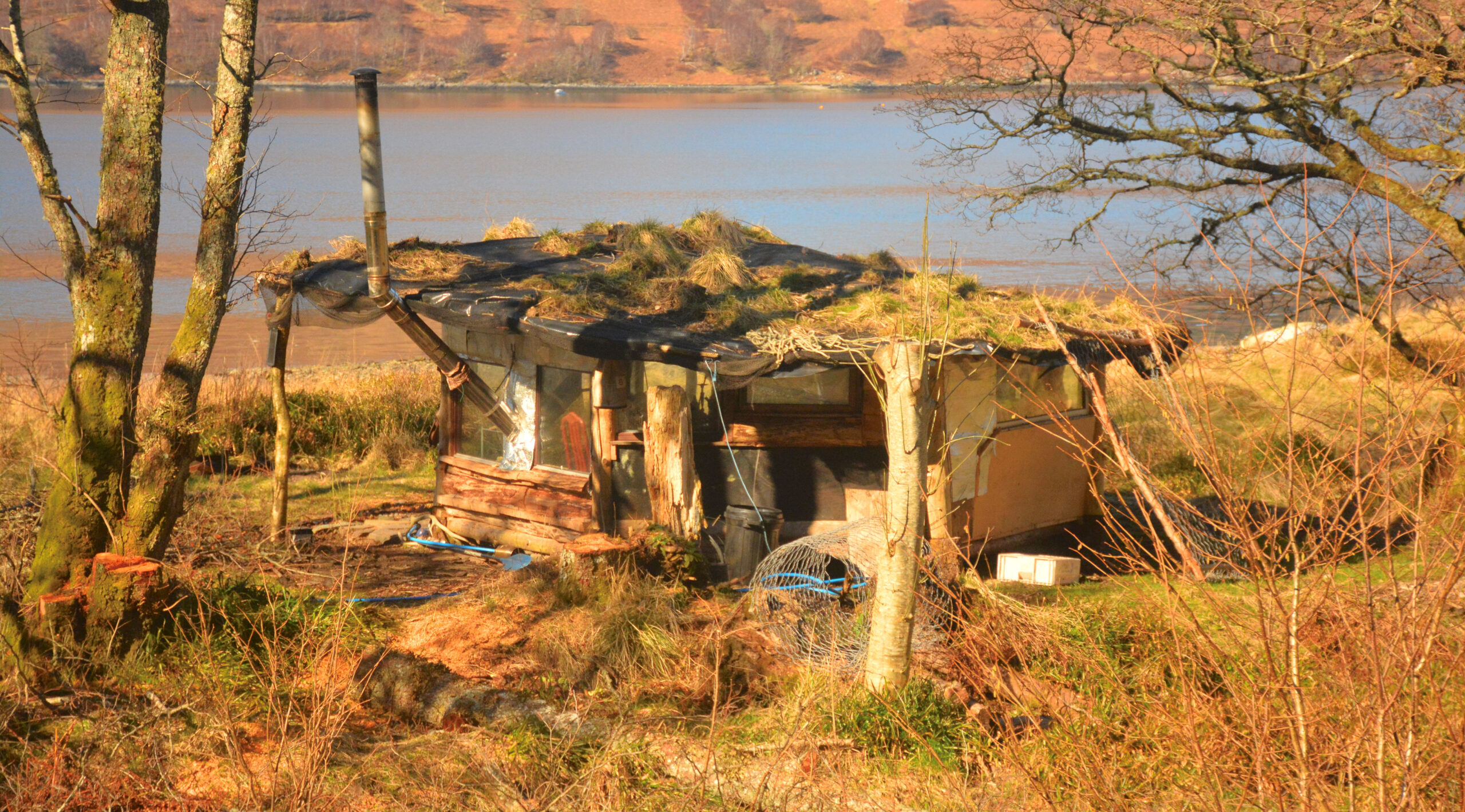Living Off the Grid: Can You Thrive in a Tech-Free, Self-Sufficient World?

The Allure of Off-Grid Living in a Tech-Obsessed World
In a world where technology dominates almost every aspect of daily life, the idea of living “off the grid” has gained increasing appeal. For many, the thought of breaking free from the constant buzz of digital notifications, crowded cities, and reliance on public utilities is not only intriguing but a necessary escape. Off-grid living represents a return to a simpler, more sustainable lifestyle, one that emphasizes self-sufficiency, independence, and a closer connection to nature.
As people grow more conscious of their environmental impact and the strains of modern life, the concept of generating your own power, growing your own food, and living without the continuous access to technology offers an alternative path. It challenges the very fabric of the convenience-driven, always-online world we live in. But could you truly thrive in such a lifestyle? Could you trade in the comforts of modernity for the rewards of self-sufficiency, freedom, and quiet from the noise of the digital age?
What Does It Mean to Live “Off the Grid”?
Living off the grid means being entirely independent of public utilities like electricity, water, gas, and even the internet. Instead of relying on city power or water systems, off-grid households typically generate their own energy using renewable resources like solar or wind power, source their own water through rain catchment or wells, and handle waste through composting or septic systems. The goal is self-sufficiency—being able to meet your own basic needs without external dependencies.
There are various levels of off-grid living. Some people choose a fully isolated lifestyle in remote areas, completely disconnected from mainstream utilities and society, while others maintain a partial off-grid existence. These individuals might still access some modern conveniences, like using solar panels to power devices or connecting occasionally to the internet for work.
This lifestyle stands in stark contrast to the modern urban experience, where we depend on the seamless integration of utilities and technology for daily tasks. Off-grid living, however, requires intentional planning, resourcefulness, and adaptability. It isn’t just about disconnecting; it’s about building a sustainable way of life that emphasizes simplicity, minimalism, and a conscious relationship with nature.
Real-Life Stories: People Who Have Thrived Off the Grid
Many individuals and families have successfully transitioned to off-grid living, motivated by a variety of reasons ranging from sustainability and minimalism to a desire for independence from modern society. One such story is that of Mark and Beth, a couple who left their corporate jobs in the city to live on a remote piece of land in Montana. Their goal was simple: live closer to nature, reduce their environmental footprint, and escape the pressures of modern life. Today, they grow their own food, rely on solar panels for power, and collect rainwater for their everyday needs.
Mark and Beth’s transition was not without its challenges. They had to learn how to garden in harsh climates, store food effectively, and maintain their off-grid systems, such as managing their solar power and rainwater collection. However, the rewards were worth the effort. Their new lifestyle allowed them to live a slower, more intentional life, focused on sustainability and personal fulfillment.
Another inspiring example is Julie and her family, who went off-grid in New Zealand after feeling overwhelmed by modern consumerism. They built an eco-friendly home, complete with solar panels and a permaculture garden. Julie emphasizes that the switch allowed her family to focus on what truly matters—health, nature, and quality time together. They’ve also built a community with nearby off-grid neighbors who share resources and advice, proving that off-grid living doesn’t necessarily mean complete isolation.
These stories show that off-grid living, while challenging, offers incredible rewards: a deep sense of accomplishment, environmental responsibility, and freedom from the demands of the modern world.
The Challenges of Off-Grid Living: Beyond Romanticism
While the idea of living off the grid is often romanticized—picture a cozy cabin in the woods, solar panels gleaming in the sunlight, and a sustainable garden flourishing outside—there are significant challenges that come with this lifestyle. One of the biggest hurdles is the physical labor involved. Unlike modern conveniences where food, water, and power are instantly accessible, off-grid living demands constant maintenance and manual effort. You must chop wood for heating, grow and harvest your food, manage waste systems, and maintain power sources, all of which require time, skill, and energy.
Weather can also pose significant challenges. Solar panels may not generate enough power during prolonged cloudy periods, or heavy rain may disrupt water collection systems. Extreme weather conditions can also threaten crops, making food self-sufficiency precarious. Additionally, the emotional adjustment to isolation can be difficult for some, especially if moving off the grid means leaving behind friends, family, and social comforts.
Logistical challenges, such as storing food without refrigeration or managing energy use efficiently, are realities that off-grid enthusiasts must face. Food storage, for instance, may require traditional preservation methods like canning or smoking to ensure a year-round supply of essentials.
Moreover, the initial financial investment in solar panels, water systems, and land can be expensive. It takes careful planning and a willingness to trade in modern conveniences for long-term sustainability. Off-grid living isn’t for everyone, but for those committed to the lifestyle, these challenges are part of the journey toward greater independence and self-sufficiency.
The Rewards of Off-Grid Living: Freedom, Sustainability, and Inner Peace
The rewards of living off the grid go far beyond just disconnecting from modern conveniences. At its core, off-grid living allows for true freedom—freedom from utility bills, dependence on external systems, and the constraints of a fast-paced, tech-driven world. By generating your own power, sourcing your own water, and growing your own food, you gain self-reliance that few experience in today’s society. This shift towards independence brings a deep sense of accomplishment and empowerment, knowing that you are capable of providing for yourself and your family while living sustainably.
Beyond the practical benefits, off-grid living offers immense emotional and mental rewards. It provides a chance to detox from the constant barrage of technology and reconnect with the simplicity of nature. Many who live off the grid report experiencing a deep sense of inner peace, driven by the slower pace of life and the ability to be present without distractions. Free from societal pressures, off-grid living allows you to focus on what truly matters—health, family, and the natural world around you.
Additionally, living a low-impact lifestyle can be incredibly rewarding in itself. Knowing that your actions contribute to reducing your carbon footprint and preserving the environment fosters a sense of purpose. This sustainable way of life cultivates a closer connection to the earth and its cycles, offering both personal fulfillment and a clear conscience.
Can You Go Off the Grid—Even Temporarily?
While living completely off the grid may seem daunting, it’s possible to adopt elements of this lifestyle on a temporary or part-time basis. Testing the waters through camping trips, weekend getaways in remote areas, or even reducing your dependence on modern conveniences can give you a taste of off-grid living without fully committing. Camping or staying in cabins without electricity offers a chance to disconnect from technology and appreciate nature, while still being a manageable experiment in self-sufficiency.
For those not ready to fully unplug, there are small sustainable habits you can adopt at home. Growing your own food in a small garden or creating a rainwater collection system for household use can give you a sense of off-grid living on a smaller scale. Reducing energy use by integrating solar panels, using energy-efficient appliances, or limiting screen time are also ways to explore a less tech-reliant lifestyle.
Ultimately, the key is to assess your own capacity for self-sufficiency and sustainability. Could you live with less? Are there ways to incorporate small, off-grid-inspired practices into your everyday life? Trying these activities helps you understand how much you value independence, nature, and the slow pace that comes with unplugging from modern conveniences.
Are You Ready to Go Off the Grid?
Off-grid living offers a compelling alternative to the tech-driven, convenience-focused world we live in. While the challenges of this lifestyle are real—ranging from physical labor to isolation—the rewards can be transformative: freedom from societal pressures, deeper connections to nature, and the satisfaction of self-sufficiency. Whether it’s growing your own food, generating your own power, or simply disconnecting from technology, the benefits of living off the grid foster a more mindful and sustainable way of life.
As you reflect on your relationship with technology and modern convenience, consider whether incorporating some elements of off-grid living could enhance your life. Could you thrive in a world where you rely more on yourself and the earth, and less on technology and consumer comforts? The question isn’t just about survival—it’s about discovering a deeper sense of fulfillment and connection with the world around you.



